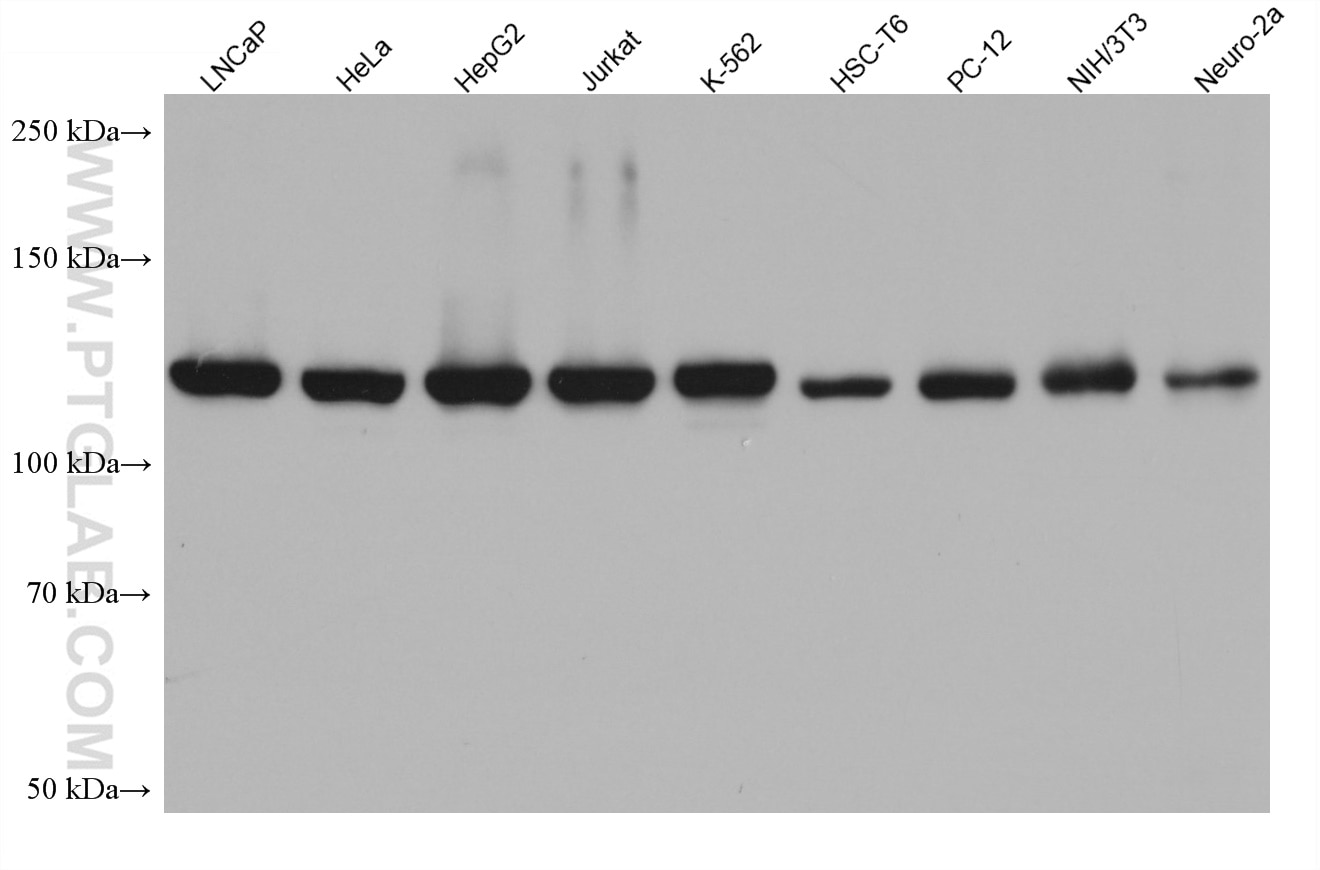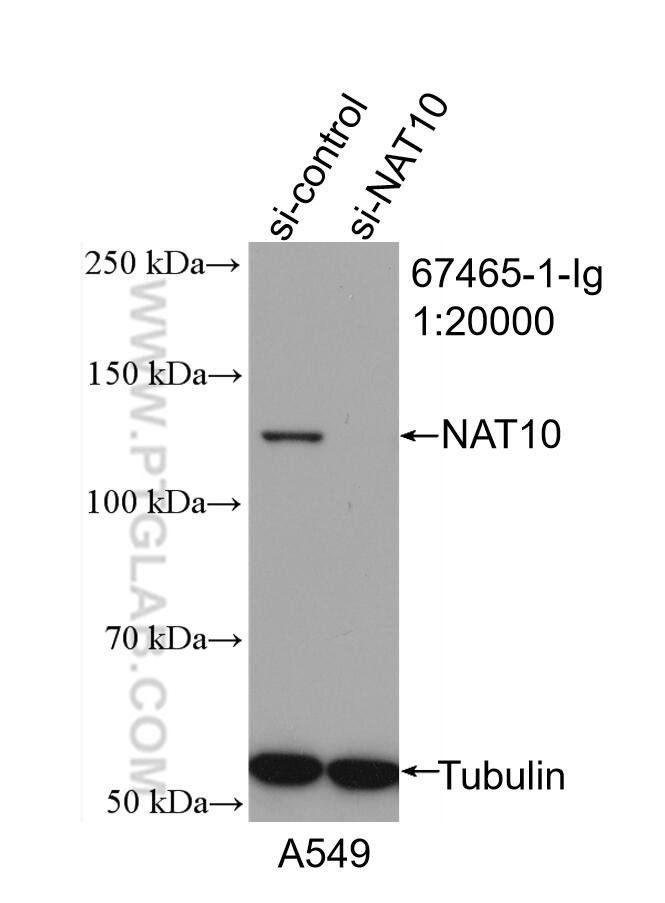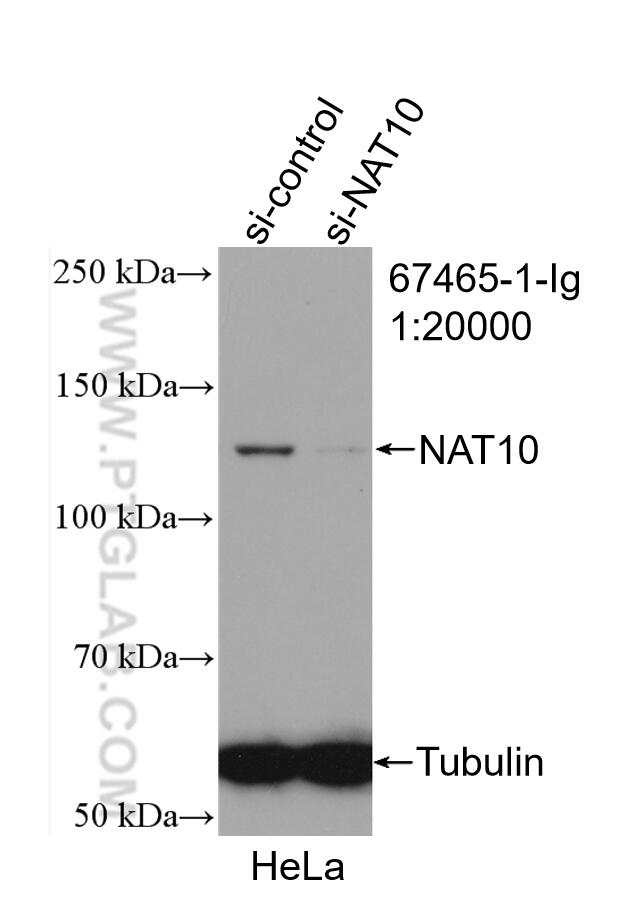Validation Data Gallery
Tested Applications
| Positive WB detected in | LNCaP cells, A549 cells, HeLa cells, HepG2 cells, Jurkat cells, K-562 cells, HSC-T6 cells, PC-12 cells, NIH/3T3 cells, Neuro-2a cells |
Recommended dilution
| Application | Dilution |
|---|---|
| Western Blot (WB) | WB : 1:5000-1:50000 |
| It is recommended that this reagent should be titrated in each testing system to obtain optimal results. | |
| Sample-dependent, Check data in validation data gallery. | |
Product Information
67465-1-Ig targets NAT10 in WB, ELISA applications and shows reactivity with human, mouse, rat samples.
| Tested Reactivity | human, mouse, rat |
| Host / Isotype | Mouse / IgG2a |
| Class | Monoclonal |
| Type | Antibody |
| Immunogen | NAT10 fusion protein Ag4355 相同性解析による交差性が予測される生物種 |
| Full Name | N-acetyltransferase 10 (GCN5-related) |
| Calculated molecular weight | 1025 aa, 116 kDa |
| Observed molecular weight | 116 kDa |
| GenBank accession number | BC035558 |
| Gene Symbol | NAT10 |
| Gene ID (NCBI) | 55226 |
| RRID | AB_2882694 |
| Conjugate | Unconjugated |
| Form | Liquid |
| Purification Method | Protein A purification |
| UNIPROT ID | Q9H0A0 |
| Storage Buffer | PBS with 0.02% sodium azide and 50% glycerol , pH 7.3 |
| Storage Conditions | Store at -20°C. Stable for one year after shipment. Aliquoting is unnecessary for -20oC storage. |
Background Information
NAT10 (N-acetyltransferase 10) is a nucleolar protein that is involved in regulation of telomerase activity, DNA damage response, and cytokinesis. It also plays a role in maintaining nuclear shape. Inhibition of NAT10 has been reported to rescue the misshapen nuclei in laminopathic cells via microtubule reorganization.
Protocols
| Product Specific Protocols | |
|---|---|
| WB protocol for NAT10 antibody 67465-1-Ig | Download protocol |
| Standard Protocols | |
|---|---|
| Click here to view our Standard Protocols |


